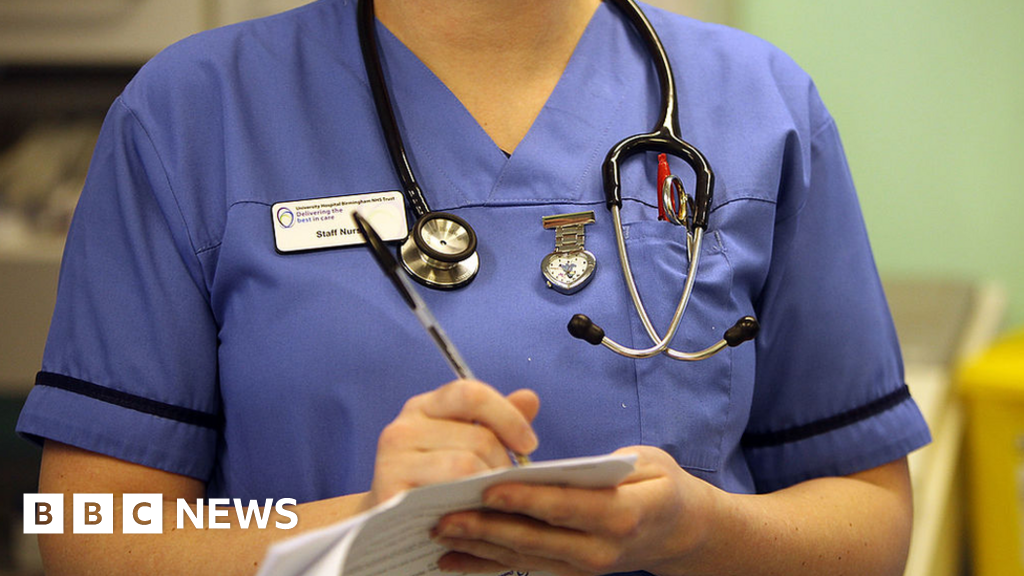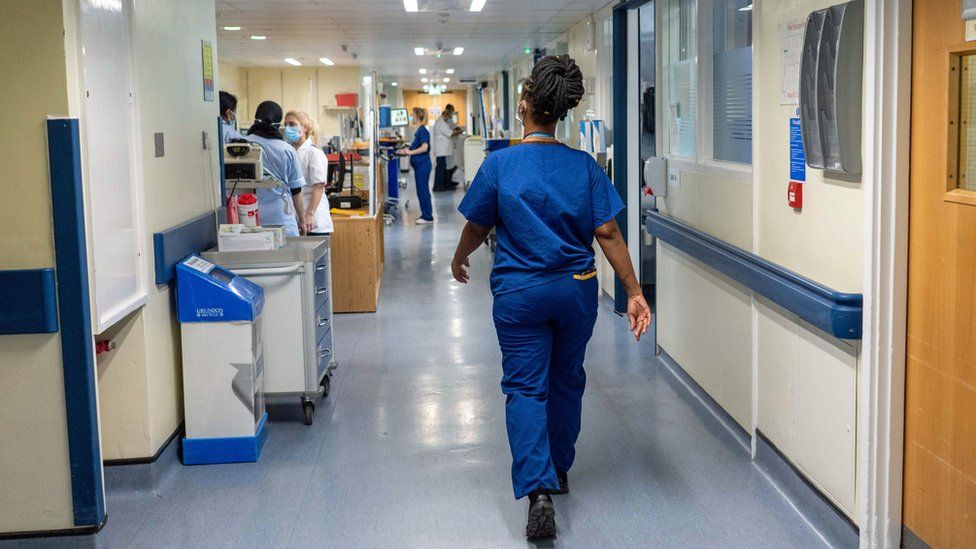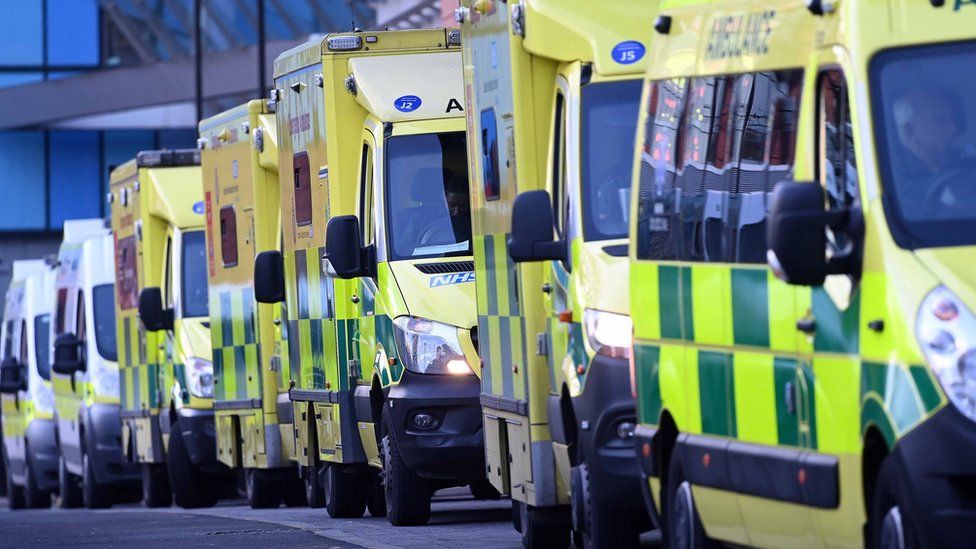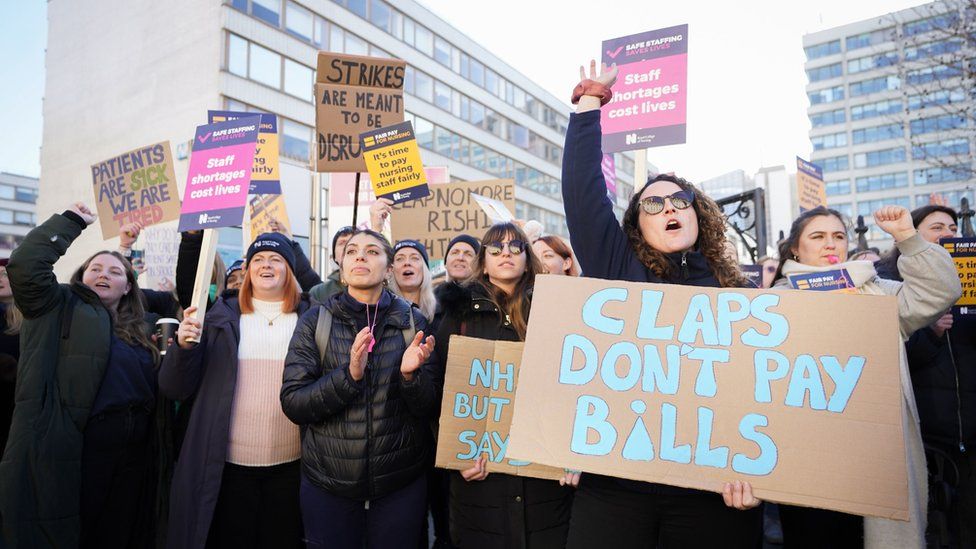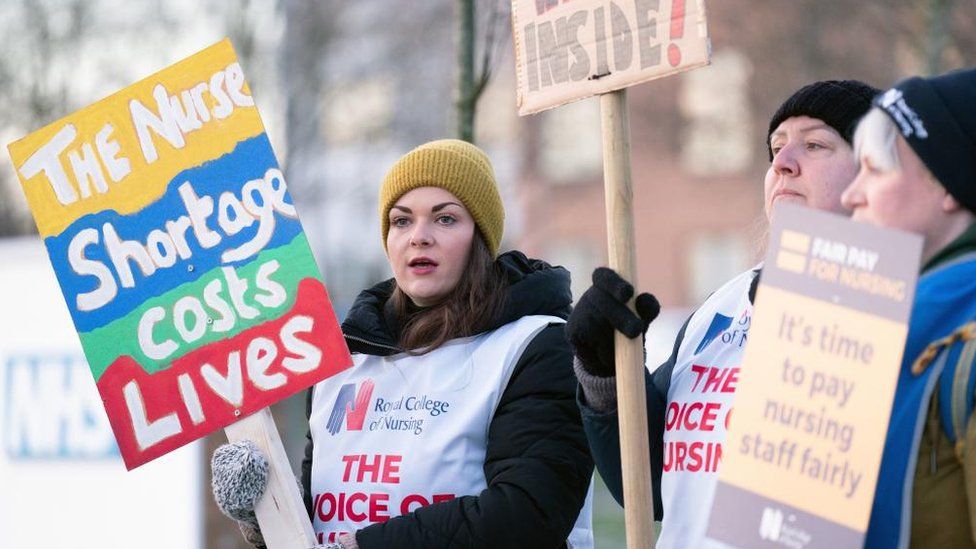
Nurses in England have started a 28-hour strike, which NHS bosses say is the largest industrial action so far.
The Royal College of Nursing (RCN) rejected the government’s pay offer and will walk out until midnight on Monday.
Union leaders agreed nurses could be called in during the strike to provide a minimal level of staffing in intensive care and for trauma services.
The government said the strike – which will impact around half of England’s NHS trusts – risks patient safety.
This latest strike comes ahead of a crucial meeting between a number of health unions, ministers and NHS bosses on Tuesday, when the government’s pay offer of 5% will be discussed.
Health Secretary Steve Barclay described the RCN’s decision to press ahead with its strike as “premature” and disrespectful to other unions taking part in the meeting.
NHS England said the strike was the largest industrial action so far and warned patients to expect “disruptions and delays to services over the strike period”.
It warned that staffing levels for some areas would be “exceptionally low, lower than on previous strike days” and the number of rescheduled appointments as a result of strike action was due to hit half a million next week.
However, it said discussions over the weekend had secured “a number of national agreements” to ensure staff could provide care “to protect life and limb services”.
These will cover intensive care units, including for neonatal and paediatric care, as well as major trauma and resuscitation units.
A spokesperson for the RCN, which represents two-thirds of UK nurses, told the BBC that a “national agreement was reached on raising staffing levels in some key areas to preserve life and limb”.
They added that this strike would be “more intense” than previous ones.
This means a small number of RCN members will be asked to work to provide a minimum standard of cover and meet the legal requirement on trade unions for life-and-limb cover to be provided.
Ministers and NHS chiefs had previously warned patient safety would be put at risk.
On Sunday, Health Secretary Mr Barclay said the strikes would put “more pressure on the NHS and will be incredibly disruptive for patients”.
Doctor Jacob Mushlin, an accident and emergency consultant at Bradford Royal Infirmary, said the absence of nurses would create delays and lower the standard of treatment at his hospital and across the country.
“The nurses provide a vital service and one that can’t be replaced by other members of staff,” he said.
“We’re going to find that we’re going to be unable to provide anything other than life or limb preserving care.”
Dr Mushlin also said he had seen a rising number of cases of “dreadful” aggression and violence towards hospital staff increasing because of long waiting times in the NHS, which was severely impacting morale.
The walkout by RCN members started at 20:00 BST and will end at midnight on Monday.
It was originally supposed to continue into Tuesday but a High Court judge ruled it would be unlawful because a six-month mandate for action had expired.

‘I’m dismayed it’s come to this – cancer nurse’
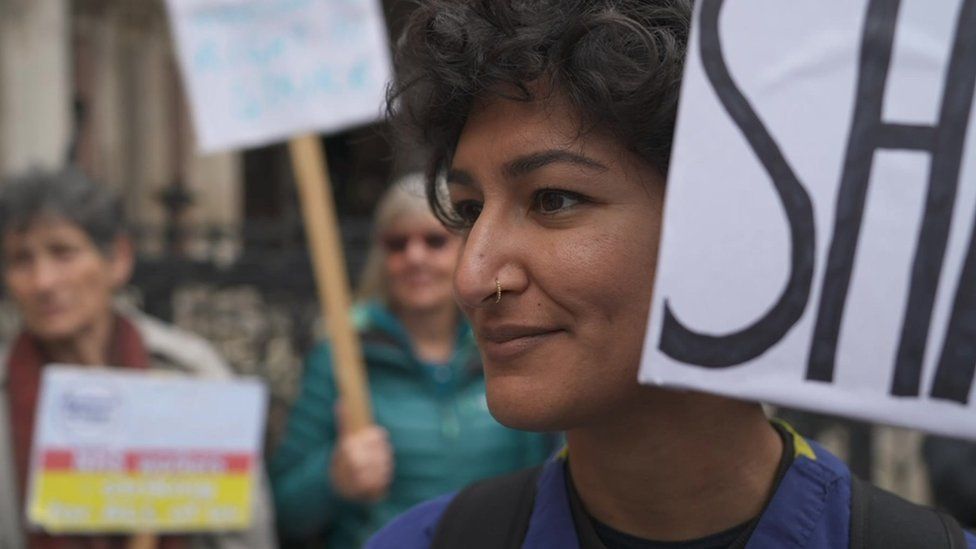
Cancer nurse Preya Assi has not taken strike action so far because her team at University College London Hospital has been exempted during previous walkouts.
It was deemed a critical service by the RCN so members were asked to stay at work while colleagues from other parts of the NHS took to the picket line.
But this time Ms Assi will be involved.
She said: “I feel dismayed. I and all my colleagues had been hoping it would not come to this.”
She said the pay offer made by the government was “untenable” because of inflation, which had left nurses struggling to pay their bills and look after their families.
“This is not an action we take lightly, but it feels like there is no other way to get them to take notice of our plight.”

The strike was called earlier this month after RCN members rejected a government offer to nurses in England of a 5% pay rise for 2023-24 and a one-off payment of at least £1,655 to top up last year’s salary, depending on staff grade.
RCN leadership had recommended members accept the offer but it was rejected by 54% to 46%.
During nursing strikes earlier this year, in January and February, wider national exemptions were in place, meaning nursing cover was maintained in other critical areas.
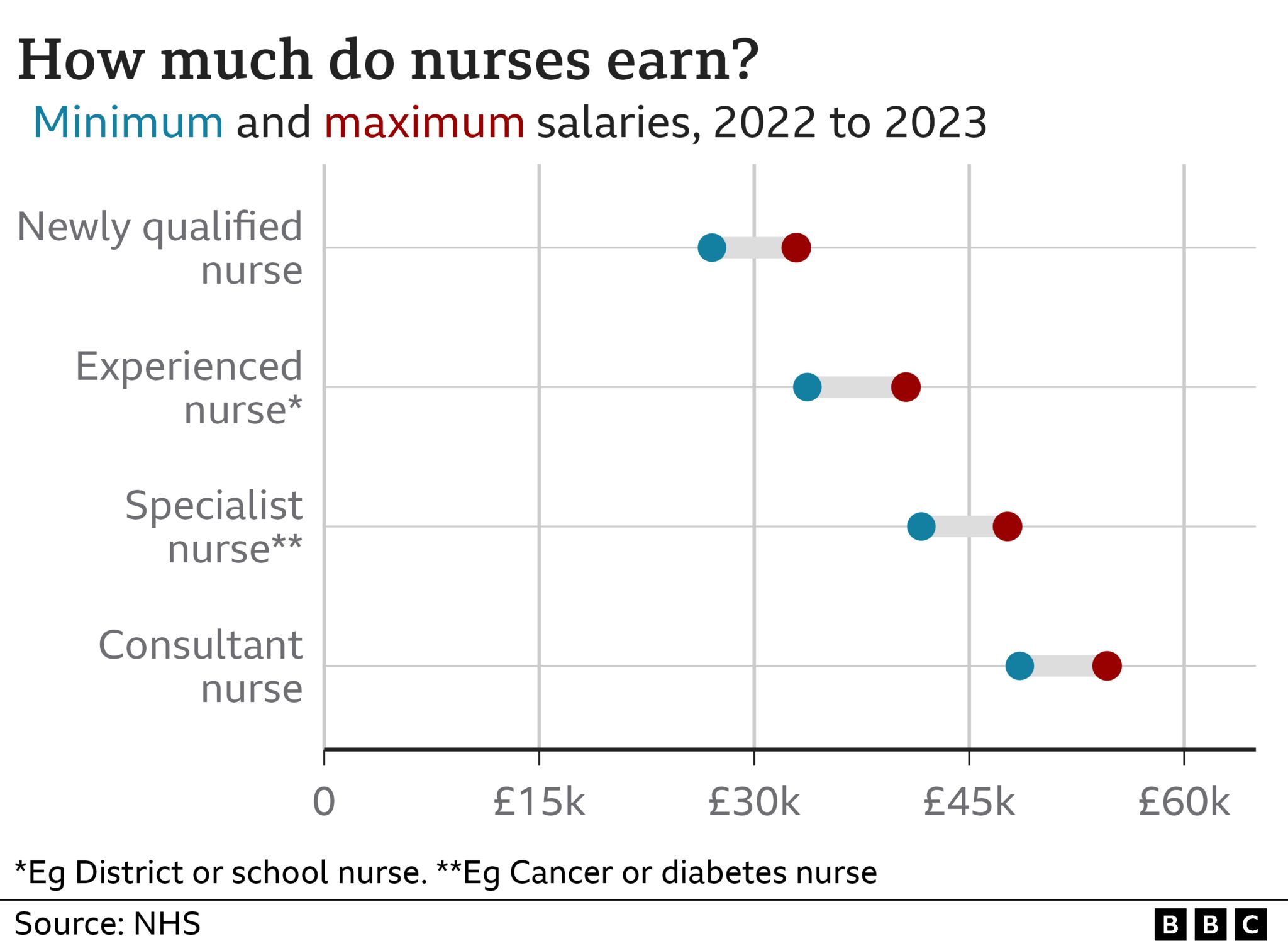

Are you affected by issues covered in this story? Share your experiences by emailing haveyoursay@bbc.co.uk.
Please include a contact number if you are willing to speak to a BBC journalist. You can also get in touch in the following ways:
- WhatsApp: +44 7756 165803
- Tweet: @BBC_HaveYourSay
- Upload pictures or video
- Please read our terms & conditions and privacy policy
If you are reading this page and can’t see the form you will need to visit the mobile version of the BBC website to submit your question or comment or you can email us at HaveYourSay@bbc.co.uk. Please include your name, age and location with any submission.
Related Topics
-
-
11 hours ago
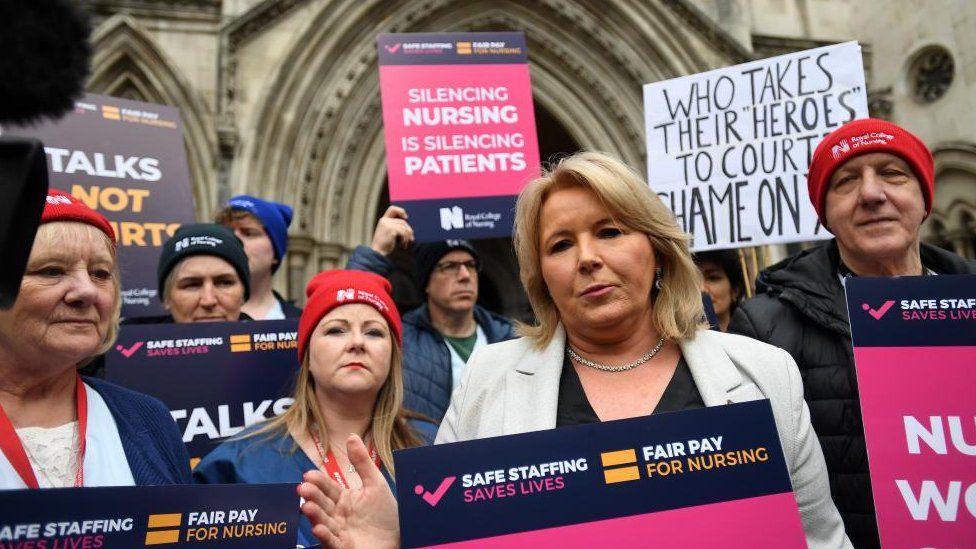
-
